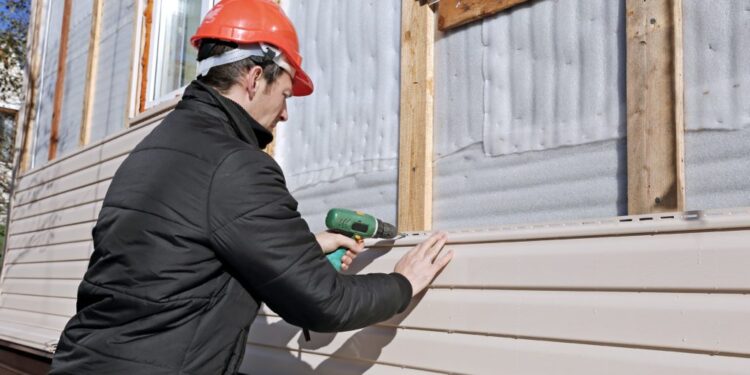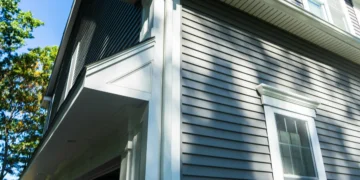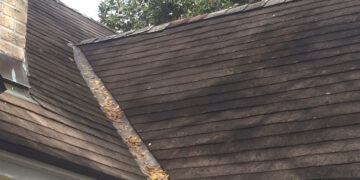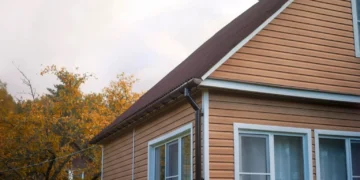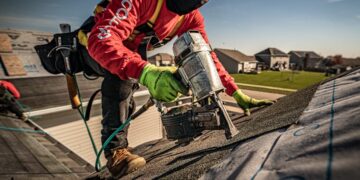Exploring the world of labor to install vinyl siding unveils a landscape of intricate details and essential considerations. From understanding the factors influencing costs to navigating the steps involved, this topic delves into the core of vinyl siding installation, offering a comprehensive guide for homeowners and enthusiasts alike.
Factors Influencing Labor Costs for Installing Vinyl Siding
When it comes to the cost of labor for installing vinyl siding, several factors play a significant role in determining the final price. Understanding these factors can help homeowners anticipate expenses and make informed decisions.
Location
The location of a property can greatly impact the labor costs associated with installing vinyl siding. In areas with higher living costs or where labor is in high demand, contractors may charge more for their services. Additionally, if the site is difficult to access or requires special permits, the overall labor cost can increase.
Complexity of the Project
The complexity of the installation project can also influence labor costs. Factors such as the size and shape of the property, the presence of obstacles like trees or landscaping features, and the need for additional preparation work can all contribute to higher labor expenses.
More intricate projects often require more time and effort, leading to increased costs.
Contractor Experience
The experience and expertise of the contractor performing the installation can impact labor costs as well. Highly skilled and reputable contractors may charge higher rates for their services, but they often deliver superior results and work more efficiently. On the other hand, less experienced or lower-quality contractors may offer lower prices but could result in subpar workmanship and potentially cost more in the long run for repairs or corrections.
Steps Involved in Installing Vinyl Siding
Installing vinyl siding on a home involves a series of steps that need to be followed meticulously to ensure a successful and long-lasting result. Below is a detailed breakdown of the process from start to finish:
Preparation
Before beginning the installation process, it is essential to prepare the area by cleaning the walls and removing any existing siding. This step ensures a smooth surface for the new vinyl siding to adhere to.
Measuring and Cutting
The next step involves measuring the walls to determine the amount of siding needed. Once the measurements are taken, the vinyl siding pieces are cut to the appropriate size using a specialized vinyl siding cutter.
Installing Starter Strips
Starter strips are installed at the bottom of the wall to provide a secure base for the first row of siding. These strips help to ensure that the siding is properly aligned and secured.
Attaching the Siding Panels
The siding panels are then attached to the wall, starting from the bottom and working upwards. Each panel should overlap the one below it to prevent water from seeping behind the siding.
Adding Trim and Accessories
Once the siding panels are installed, trim pieces and accessories such as corner posts and J-channels are added to give the installation a polished look. These finishing touches also help to protect the edges of the siding.
Final Inspection
After all the siding panels, trim pieces, and accessories are in place, a final inspection should be conducted to ensure that everything is properly installed and secure. Any loose panels or trim should be resecured before considering the installation complete.
Tools and Techniques
Throughout the installation process, various tools such as a hammer, nails, a level, and a chalk line are used to ensure that the siding is installed correctly and securely. Additionally, techniques such as properly overlapping the siding panels and securing them tightly are crucial for a successful installation.
Pros and Cons of Hiring Professionals vs. DIY Installation
When it comes to installing vinyl siding, homeowners often face the decision of whether to hire professionals or embark on a do-it-yourself (DIY) project. Each option has its own set of advantages and drawbacks that should be carefully considered before making a choice.
Advantages of Hiring Professionals
1. Expertise and Experience: Professionals have the knowledge and skills to install vinyl siding correctly, ensuring a high-quality finish.
2. Time-Saving: Hiring professionals can save homeowners time and effort, as they can complete the installation efficiently.
3. Warranty Coverage: Many professional installers offer warranties on their work, providing peace of mind to homeowners in case of any issues.
Potential Drawbacks of DIY Installation
1. Lack of Experience: DIY installation may lead to mistakes due to lack of experience, potentially resulting in costly repairs in the future.
2. Time and Effort: Installing vinyl siding requires time, effort, and attention to detail, which may be challenging for homeowners with limited experience.
3. Safety Concerns: Working at heights and using specialized tools can pose safety risks during a DIY installation.
Tips for Homeowners
1
. Assess Your Skills: Consider your level of experience and knowledge before deciding whether to hire professionals or attempt the installation yourself.
2. Budget Consideration: Compare the costs of hiring professionals versus the expenses of a DIY project, including tools and materials.
3. Research and Planning: Before making a decision, research installation techniques, requirements, and potential challenges to ensure a successful outcome.
Average Labor Costs for Vinyl Siding Installation
Installing vinyl siding involves labor costs that can vary depending on various factors. Here, we will break down the average labor costs associated with installing vinyl siding and compare them with other siding materials.
Labor Costs Breakdown
When it comes to vinyl siding installation, labor costs typically range from $2 to $7 per square foot. This cost includes the installation of the siding panels, trim pieces, and any additional accessories needed for the project.
Factors Influencing Labor Costs
Labor costs can vary based on the size of the project, the complexity of the installation, and the location of the property. Larger projects may require more labor hours, leading to higher overall costs. Additionally, projects in areas with higher labor rates or where there are specific challenges, such as difficult terrain or weather conditions, may incur higher labor costs.
Comparison with Other Siding Materials
When comparing average labor costs for vinyl siding installation with other siding materials, vinyl siding tends to be more cost-effective in terms of labor. For example, the labor costs for installing wood or fiber cement siding can be higher due to the additional maintenance and expertise required for these materials.
Vinyl siding is relatively easy to install, which can lead to lower labor costs overall.
Common Challenges Faced During Vinyl Siding Installation
Installing vinyl siding may come with its own set of challenges that can make the process more complex. Here are some common challenges that homeowners or professionals may face during vinyl siding installation, along with tips on how to overcome them effectively.
Uneven Surfaces
One of the key challenges during vinyl siding installation is dealing with uneven surfaces on the exterior of the house. This can lead to gaps and inconsistencies in the siding, affecting the overall look and durability of the installation.
- Ensure proper preparation of the surface by repairing any damage and smoothing out uneven areas before installing the siding.
- Use a foam insulation board to level out the surface and provide a smooth base for the siding.
- Consider using thicker siding panels or shimming behind thinner panels to compensate for irregularities in the surface.
Weather Conditions
Weather can be a major factor impacting the installation of vinyl siding, especially if it is windy, rainy, or extremely hot or cold. These conditions can affect the performance of adhesives, the flexibility of the siding, and the overall quality of the installation.
- Avoid installing vinyl siding on extremely hot days, as the panels may expand and buckle when temperatures rise.
- Plan the installation during a dry and calm period to prevent water damage and ensure proper adhesion of the siding.
- Consider using specialized tools or techniques designed for extreme weather conditions to ensure a successful installation.
Matching Existing Siding
Matching new vinyl siding with existing siding can be a challenge, especially if the color, texture, or style of the old siding is no longer available. Mismatched siding can detract from the overall appearance of the house and create an unattractive finish.
- Take accurate measurements and samples of the existing siding to find the closest match in color and style for the new vinyl siding.
- Consult with a professional to help identify suitable replacement options and ensure a seamless transition between old and new siding.
- If an exact match is not possible, consider replacing all the siding on that particular section of the house for a uniform look.
Final Review
In conclusion, the labor to install vinyl siding presents a mix of challenges and rewards, with professionals offering expertise and DIY enthusiasts finding fulfillment in hands-on projects. As you embark on your vinyl siding journey, may these insights guide you towards a successful and satisfying installation experience.
Key Questions Answered
What factors can influence labor costs for installing vinyl siding?
Factors such as location, complexity of the project, and contractor experience can impact labor costs.
What are the steps involved in installing vinyl siding?
The steps include preparation, installation process, and finishing touches. Specific tools and techniques are required for successful installation.
What are the pros and cons of hiring professionals vs. DIY installation?
Hiring professionals offers expertise, while DIY installation allows for hands-on experience. Potential drawbacks of DIY include lack of skill and time commitment.
What are the average labor costs for vinyl siding installation?
Labor costs vary based on project size and location. Comparisons with other siding materials can provide insights into cost differentials.
What are common challenges faced during vinyl siding installation?
Common challenges include weather conditions, incorrect measurements, and alignment issues. Solutions and tips can help overcome these obstacles effectively.

